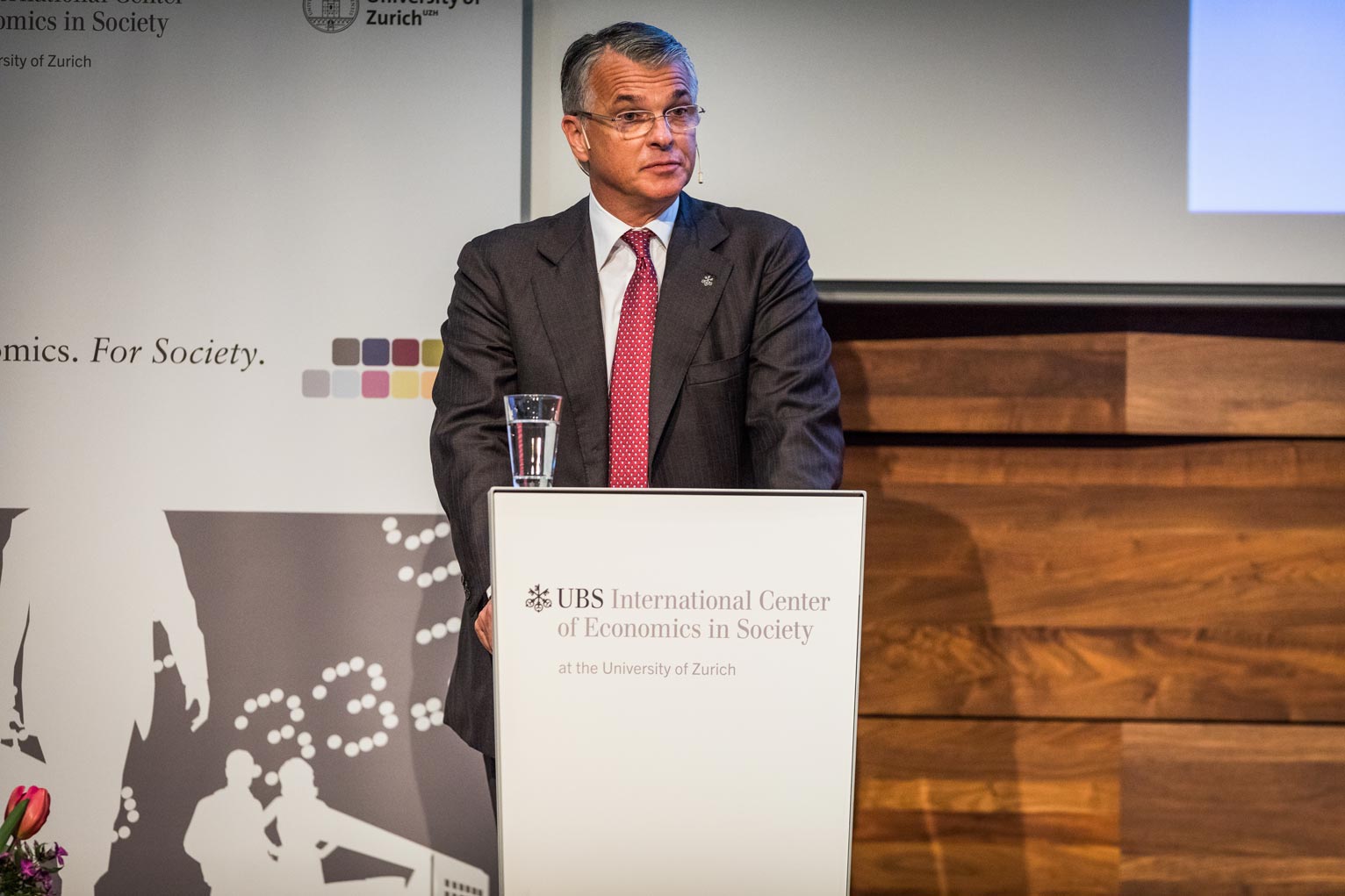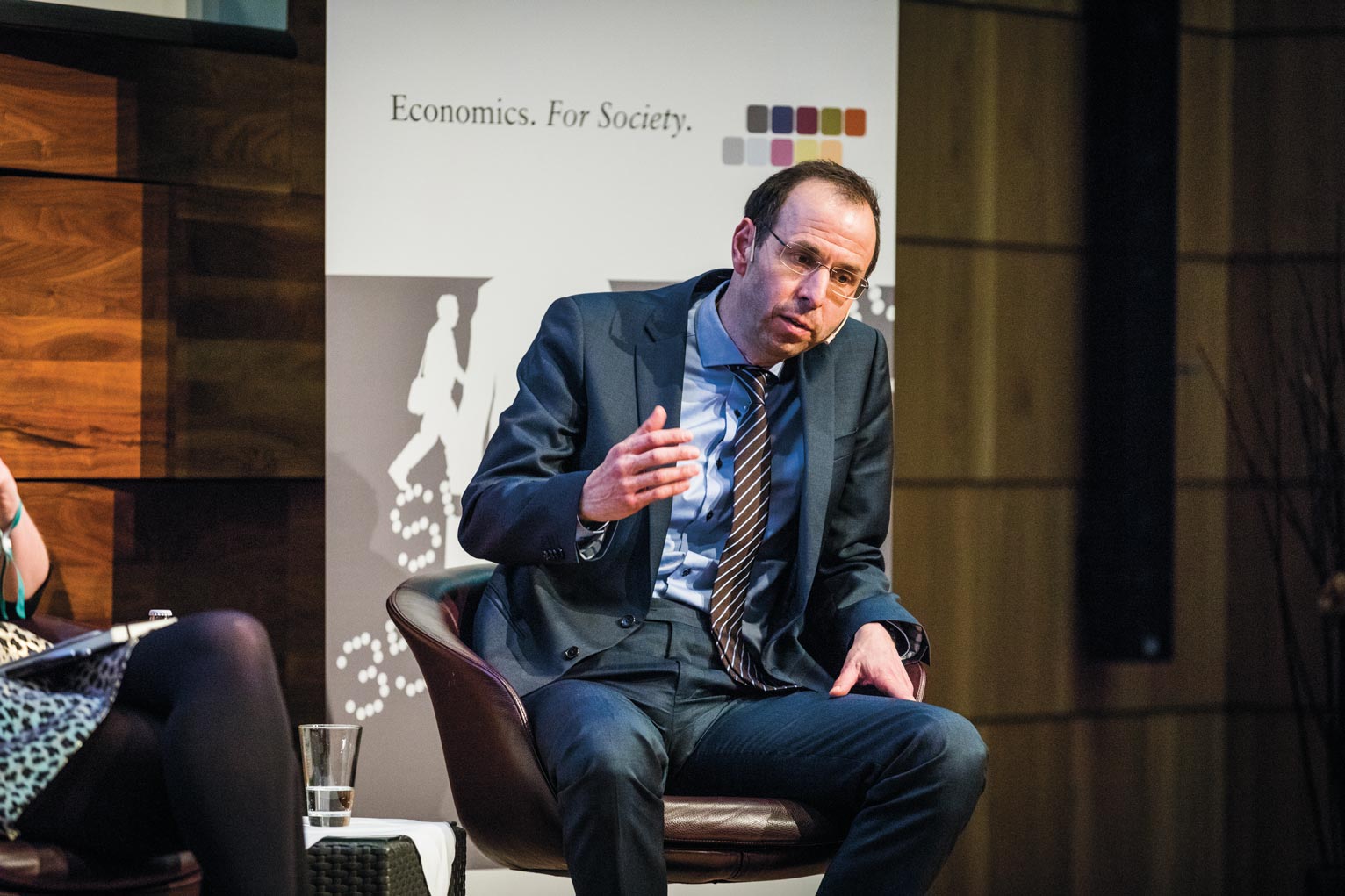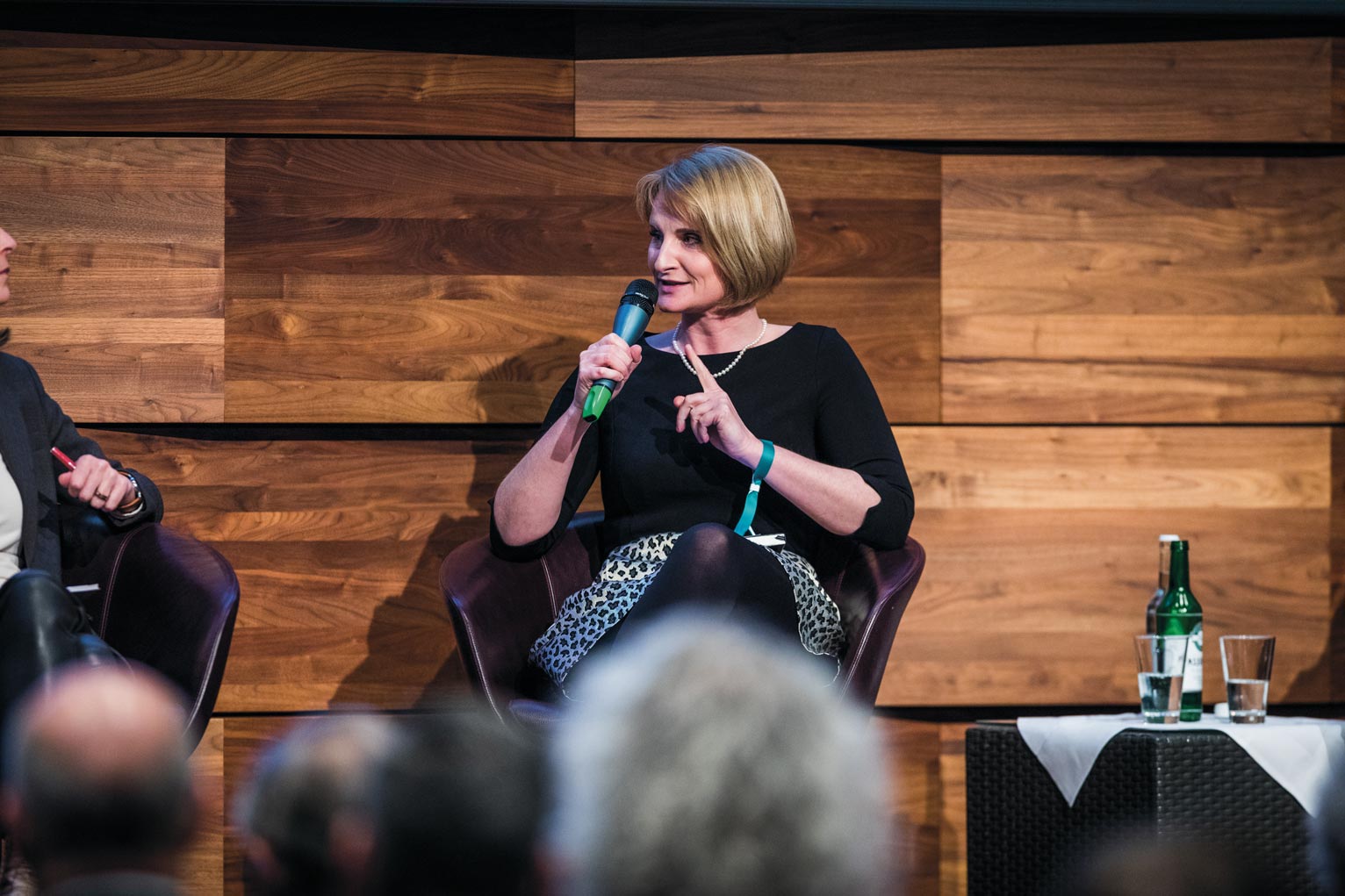Article
New technologies, new services, new client needs – is the financial market at a historic turning point? And if so, what are the implications for Swiss finance? At this year’s UBS Center Podium economic historians and experts from the financial sector were divided on the question about the significance of today’s changes in finance.
by Maura Wyler
Before entering the hectic world of fintech and the future of finance, the first keynote took the audience on a journey through the history of finance, putting today’s developments into perspective. William N. Goetzmann, Professor at Yale School of Management, opened the Podium with a keynote lecture based on his recently published book Money Changes Everything: How Finance Made Civilization Possible. Looking back in history, Goetzmann linked today’s blockchain technology to prehistoric Mesopotamian clay balls.
4,000 years of fintech
Goetzmann is an expert on a diverse range of investments, including stocks, mutual funds, and real estate. About 10,000 years ago, he explained, people in the ancient Near and Middle East used a hollow ball-like clay envelope called a “bulla” to make a contract for the delivery of future goods. The bulla contained some smaller tokens which identified the quantity and types of goods being recorded. It was an impressive new technology, enabling people to set up financial contracts even before the invention of writing. In his talk, Goetzmann emphasized the importance of finance as a driving force for innovation, such as the invention of written language or money, the latter being key for the expansion of international trade. While the technology has changed, the require ments for payment systems remain the same. No matter whether you pay with a “bulla” or with plastic money, the payment systems need to be secure, accepted, mobile, and finite.
Cryptocurrency and crowdfunding
Goetzmann believes in the potential of fintech and the technological progress in finance. Crowdfunding, for example, has the potential to democratize access to ventures, thus, “crowdfunding threatens existing institutional structures.” This creates resistance, as is often the case with innovative technologies. When asked about cryptocurrencies, Goetzmann was concerned about the current bitcoin and blockchain euphoria. Even so, he concluded with an optimistic outlook: the past has shown time and again that once euphoria evaporates, the changes that remain still represent a significant improvement.
When experts disagree
Are we now at a historic turning point in finance? This question divided the experts on the panel following Goetzmann’s keynote lecture. Marc P. Bernegger, serial entrepreneur, and Daniel Diemers, partner at PwC Strategy&, are convinced that we have indeed reached a juncture. They argued that the technological revolution, in particular the internet, has changed the economy tremendously. Never before in human history has so much innovation occurred simultaneously and as fast as it does today.
Economic historian Joachim Voth (University of Zurich), however, could not disagree more. He put today’s technological innovations into a long-term perspective. Obviously, there have been many new forms of financial services, such as internet banking. But for Voth, these are part of a continuous development and far from a turning point. In particular, the financial system’s central function and the main services it provides have not changed and are not going to change in the near future. Indeed: “The most fundamental innovation in finance in the past 100 years was the ATM.” The panelists then discussed whether and how the new fintech companies reshape the industry. “The question is: How will the established financial institutions react to the new players?”, asked Bernegger. The barriers between different industries are fading. This is a good thing because it will lead to more innovation, concluded Diemers.
Does Swiss finance have a future?
Sergio P. Ermotti, Group Chief Executive Officer of UBS Group AG, opened the second part of the Podium with a keynote speech on the future of Swiss finance. And he made it clear: Switzerland as a financial center is important today because time and again there were people in our country who saw new opportunities and seized them. Ermotti has no doubt that Switzerland can remain successful – but only if we are not content with just being good.
Looking back over the past 20 years, the financial industry has been characterized by two major phases – one of innovation and extreme growth, and one of destabilization and intensive regulation. What can we learn from the past? Ermotti’s answer: “There has to be a balance between innovation and regulation.” Looking ahead, he talked about major changes driven primarily by technology and asked how we can be innovative and sustainable at the same time. While acknowledging the risks for the banking industry (e.g. cybercrime, big data) and for society (e.g. replacing people with machines), Ermotti views digitalization above all as an opportunity. In fact, the digital future began long ago. UBS, for instance, invests more than 10% of its revenue in technology and systems to become more efficient, to make its products more attractive for its clients – and at the same time, to give employees the opportunity to perform more interesting tasks.
However, Ermotti is concerned about the adaptability of the political structures in Switzerland and asked: Is our political system suited to the greater speed of this technological world? He then elaborated on three major areas, which, in his view, need to be improved to keep Swiss finance in the game: “We need smarter regulations, closer integration, and more rapid digitalization.” With these next steps, we can continue the success story of the Swiss financial center, Ermotti concluded.
Digitalization, human capital, and banking secrecy
Following Ermotti’s speech, Christina Kehl, Co-Founder and Managing Director at Swiss Finance Startups, and Tobias Straumann (University of Zurich) joined him for the second panel session of the day. Again, the experts disagreed on the question whether we are facing a caesura in finance. For Christina Kehl it is a historic turning point, because today the customers dictate how the business changes, something we have never experienced before. Ermotti admitted that the changes are remarkable, but he doubted that they are substantial enough to call them historic. Economic historian Tobias Straumann finally backed his colleague Joachim Voth, and added that the often-discussed risks of digitalization in his opinion are overemphasized in the media. Unlike other countries, Switzerland has a high level of human capital and the Swiss economy is therefore well equipped for technological changes. However, Straumann reminded everybody that a very different change hit Switzerland’s financial center particularly hard: “With the revocation of banking secrecy, the historic turning point has already happened. Technology will not help to stop the disruption.”
#BetterTogether
The panelists then touched on the importance of cooperation and what it means for the small players. According to Kehl, cooperation between big financial institutions and fintech startups often fails. The main reasons are the different business cultures and the legacy systems of big banks or insurance companies, both being obstacles for the implementation of new technology. It became clear from the discussion that there is a mutual dependency between big financial institutions and fintech startups. Building bridges between them is key for the future success of Swiss finance.
New technologies, new services, new client needs – is the financial market at a historic turning point? And if so, what are the implications for Swiss finance? At this year’s UBS Center Podium economic historians and experts from the financial sector were divided on the question about the significance of today’s changes in finance.
by Maura Wyler
Before entering the hectic world of fintech and the future of finance, the first keynote took the audience on a journey through the history of finance, putting today’s developments into perspective. William N. Goetzmann, Professor at Yale School of Management, opened the Podium with a keynote lecture based on his recently published book Money Changes Everything: How Finance Made Civilization Possible. Looking back in history, Goetzmann linked today’s blockchain technology to prehistoric Mesopotamian clay balls.





